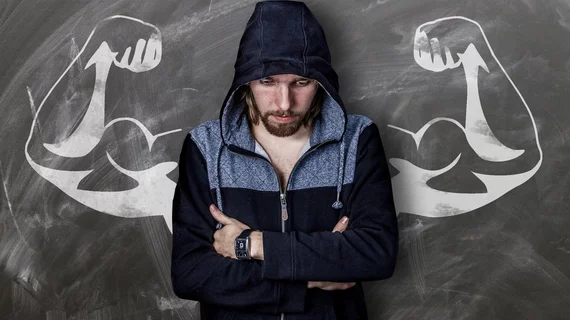Amazon foregrounds consumer AI with its new health-improvement wearable
Trotting out a new digital health assistant this week, Amazon is emphasizing the wearable’s incorporation of AI to guide users toward some complicated goals.
These include reducing body mass index (BMI) and experiencing less stress by speaking more positively.
To the world, the device will look like a watchband minus the watch. That’s because the hardware faces the wearer’s wrist.
The band’s sleek circular appearance when it’s not being worn may explain why the Big Tech megaretailer is calling the product—a combo of app, sensor panel and wristband—the Halo.
In fact, the name refers to two parts. Halo itself is a mobile app while Halo Band is what you wear.
As for the sophisticated uses of AI, the Halo supplies users with feedback and guidance across five named health indices. The idea behind “Activity” and “Sleep” are self-explanatory.
But, as explained in Amazon blog posts, “Body” uses AI to image and track BMI by taking full-body photos on a smartphone, while “Tone” taps AI to give feedback on tone of voice.
The other section, “Labs,” designs and measures performance on workouts, challenges and the like.
In an Amazon press release, the product receives an endorsement from Eduardo Sanchez, MD, MPH, chief medical officer for prevention at the American Heart Association, which shared data with Amazon during Halo product development.
“Through our Center for Health Technology and Innovation, we [at the AHA] are pleased to provide our evidence-based science as part of this solution, which we believe has the potential to drive behavior change towards healthier lives,” Sanchez says.
Amazon is selling the package at an “early access” price of $64.99.

